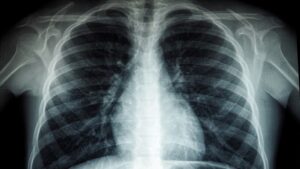[ad_1]
WHAT IS A HORMONE DISORDER?
Hormones, most of which are controlled by the pituitary gland in the brain and secreted by glands in different parts of the body, play a role in many critical tasks in the body.
Many tasks, from regulating body temperature to the smooth realization of the menstrual cycle, from resting the mind in sleep to coping with negative emotions, are performed by hormones. Hormones also enable the body to enter puberty, grow, and reproduce in a healthy way.
Some disorders or anomalies in the brain, pituitary gland, glands or various organs may cause hormones not to be secreted at a balanced and correct level. This condition is defined as a hormonal disorder and is extremely critical.
People with hormonal disorders health may encounter problems. Excessive hair growth of the body, failure of puberty, lack of sleep patterns, lack of menstrual cycle and infertility are just a few of the problems that may arise from hormonal disorders. For this reason, it is highly beneficial for anyone who wants a healthy life to have their hormone levels checked regularly.
SYMPTOMS OF HORMONE DISORDER
Hormones control so many functions in the body, and so there can be many different symptoms of a hormonal disorder. Hormone disorder symptoms can also be observed in different ways in men and women.
The symptoms encountered in hormonal disorders affecting the reproductive system in women are as follows:
– Sensitivity in the breasts,
– Excessive heat and sweating at night, increased hairiness,
– Losing and drying of the natural structure of the vagina,
– Rapid weight gain or loss
– Enlargement of the clitoris,
– Irregular and painful menstrual cycle,
– Osteoclasis,
– Frequent dry eyes
– Loss of concentration during the day,
– Intense diarrhea or severe constipation,
– A depressed and negative mood.
Thyroid hormones also affect reproductive functions; There may be signs of hypo- or hyperthyroidism in the disorder. While these are symptoms such as coldness, weakness, sleepiness, depression, and dry skin in case of hypothyroidism, the opposite findings are seen in hyperthyroidism. But both conditions affect reproductive and menstrual cycles.
Hormonal disorders in the reproductive system affect many different points, from the quality of sexual life to fertility, from general psychology to body resistance. For this reason, it is very important for women who experience a few of the above symptoms to consult a specialist doctor as soon as possible with the suspicion of a hormonal disorder.
HORMONE DISORDER TREATMENT
A significant part of the hormonal disorder can be eliminated with various treatment methods, and with the resolution of the problem, the health problems caused by the disorder may resolve spontaneously.
If sufficient suspicion arises, a hormone disorder test is performed. The tests, which can analyze the hormone level in the body in detail, clearly reveal which hormone is secreted at what level.
If a hormone disorder is diagnosed as a result of the tests, different treatment methods are applied. Hormone disorder treatment in both men and women is predominantly in the form of hormone supplementation.
In some cases, the secretion of the hormone may be prevented by the formation of harmful factors such as tumors, cysts or infections in the related gland. If such a problem is detected, the appropriate medical or surgical intervention methods are selected to solve the problem.
Follow NTV on social media
[ad_2]
Source link






